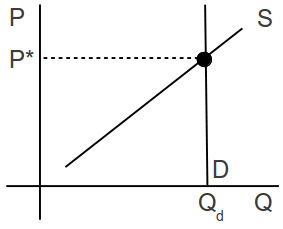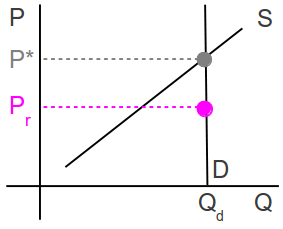Paul Krugman, who won the 2008 Nobel Memorial Prize in Economic Sciences for his work in Economic Geography, was at it again in December 2013, in yet another of his anti-Bitcoin rants in the Opinion pages of the New York Times: “Bits and Barbarism” (22 December 2013). It is unclear why something with a total value of about 5% of Carlos Slim’s personal portfolio so upsets him, but Bitcoin has a hold on his imagination that borders on obsessive.
Normally, I prefer not to create any incentive to drive traffic to the trolling of attention-princesses, but this one is so rich with absurdity that it calls for point-by-point rebuttal.
Krugman begins by conflating goldbugs with bitcoiners, and then mocking them, as a neoprog welfare statist might conflate collectivist neocons with individualist libertarians as ‘right-wingers’. Specifically, he sees anyone who is concerned with the prospect of inflation in the foreseeable future as an environment-destroying throwback to the days of swashbucklers and buccaneers.
“But gold prices, while down from their recent peak, are still three times what they were a decade ago…” in very large measure due to the inflationary policies that Krugman has cheered on. On the one hand, he ridicules the notion that inflation is a problem, and on the other he provides evidence of 11.6% annual inflation, using the USD price of gold as a proxy. For both to be true, he must believe that 10-15% inflation is nothing to worry about; pity the pensioner on a fixed income.
“Bitcoin is a digital currency that has value because… well, it’s hard [for me] to say exactly why [without directly addressing what it is that gives it value]…”
Like government fiat and gold, bitcoins are fungible, durable, portable, and divisible. Like gold and unlike government fiat, bitcoins are scarce. Unlike both government fiat and gold, bitcoins are transmittable from any computer or smartphone with Internet access, and one can digitally sign documents with a bitcoin wallet and embed a hash of the signed document into the bitcoin blockchain.
Unlike gold, which has very little intrinsic value beyond jewelry—The Bling Theory of Value—Bitcoin provides a decentralized financial infrastructure that is immune from the kinds of political manipulation that have led to housing bubbles, hyperinflations, and other asset bubbles since government fiat replaced gold-backed national currencies in the early 1970s.
“…but for the time being at least people are willing to buy it because they believe other people will be willing to buy it.” This, of course, being the defining characteristic of an asset, as opposed to a consumption good. With this statement, Krugman tacitly dismisses all financial markets along with global wholesale trade and distribution. After all, my local grocers are willing to stock their bins with fruits and vegetables because they believe other people will be willing to buy them.
“It is, by design, a kind of virtual gold.”
The passage in Satoshi’s paper to which this assertion refers reads:
The steady addition of a constant of amount of new coins is analogous to gold miners expending resources to add gold to circulation. In our case, it is CPU time and electricity that is expended.” (p.4 §6)
The operative phrase here is “is analogous to“. It is a metaphor; a model, as it were. As an economist, Krugman should understand that models are simplified extractions of reality used to render the salient points of a complex concept rhetorically more palatable. One might as well dismiss the entire body of Krugman’s work on economic geography because he did not possess the huge tracts of land that so occupied his imagination, but only brooded over from afar.
“And like gold, it can be mined: you can create new bitcoins, but only by solving very complex mathematical problems that require both a lot of computing power and a lot of electricity to run the computers.”
That is not how gold is mined. One mines gold with shovels, pickaxes, and other sundry bits of base metal. As for Bitcoin ‘mining’, the new bitcoins are rewards for being the first to solve a fiendishly difficult mathematical puzzle after confirming a batch of recent transactions. It is a game of skill, and not a scavenger hunt.
As for his mental excursion to Iceland, it is very difficult for the Icelanders to export the abundant hydrothermal energy with which that land has been blessed and cursed. Unlike oil, it is not easy to transport steam by supertanker. Better to convert it to electricity in place and use it to produce aluminum and bitcoins for export. Far from being a waste of energy, it is an ideal use of a resource that otherwise might lie fallow. Krugman’s argument screams in favor of concentrating bitcoin transaction confirmation—aka, ‘mining’—in Iceland!
“The third money pit is hypothetical.” Here, ‘hypothetical’ is a polysyllabic term that means something akin to ‘cherry-picked’.
“[Keynes] went on to point out that the real-life activity of gold mining was a lot like his thought experiment. Gold miners were, after all, going to great lengths to dig cash out of the ground, even though unlimited amounts of cash could be created at essentially no cost with the printing press.”
By this logic, why bother with the printing press? Why not simply adopt sand or seawater as money, both of which can be had in the seemingly limitless quantities of government fiat? If Krugman truly does not see the difference between a good that is durable, portable, divisible, fungible, and scarce from one that can be produced in seemingly unlimited supply, then it is very difficult to see how he managed to pass undergraduate Economics 101.
“Keynes would, I think, have been sardonically amused to learn how little has changed in the past three generations.”
Keynesianism prevails predominantly in the USA and the UK, and it is not very influential elsewhere in the world. Krugman’s lament is provincial and suggests that he believes that the USA’s 4% of the world’s population is representative of the great mass of humanity.
With regard to his swipes at gold, he seems to operate under the misconception that national currencies are still backed by gold. Otherwise, why obsess about it so, in a discussion of money in general and bitcoins in particular? (Never mind that bitcoins have no connection, other than occasionally metaphorical, with gold.)
Whether Keynes would be amused to learn how little has changed since the severing of national currencies’ ties to gold in the early 1970s is a matter of speculation. However, Krugman is right that modern inflation rates would have been unthinkable a half-century ago.
In 1971, Pres. Nixon initiated a 90-day price freeze in the USA, in response to inflation rates that had risen to a high of 6% per year, and seemed to be stuck at a devastatingly high rate of 4% per year!
“So why are we tearing up the highlands of Papua New Guinea to add to our dead stock of gold…”
If Krugman disapproves of gold mining, then he should not join with others to tear up the highlands of Papua New Guinea to add to his and their dead stock of gold. As to why, the answer is so simple that even an economist should understand it: expected benefits exceed expected costs.
“…even more bizarrely, running powerful computers 24/7 to add to a dead stock of digits?”
The answer is so simple that even an economist should understand it: expected benefits exceed expected costs. More to the point, though, why does this bother him so? One similarly could argue against collecting comic books, listening to what passes for popular music these days, or spending one’s days writing attacks on Bitcoin. Aside from traffic to his New York Times Opinions, what does Krugman gain from misrepresentations? Alternatively, what does Bitcoin threaten that is precious to him?
“[I]nflation in advanced countries is clearly too low, not too high.”
Apparently, Krugman does not live on a fixed income, and he does not have to deal with the erosion of the currency’s value. Four decades ago, an inflation rate of 4% per year was justification for a price freeze in the world’s presumptive bastion of capitalism. Today, Krugman brushes off 10-15% per year as clearly too low.
If Bitcoin succeeds as the foundation of a global financial system that is accessible to anyone in the world with a smartphone, even with its tendency to increase in value over the long run, it will repudiate the foundation of Krugman’s Keynesian faith, and that is what all his trolling and ranting seems to be about. Otherwise, just let us run our little experiment in peace.
Invest accordingly.
Prof. Evans







